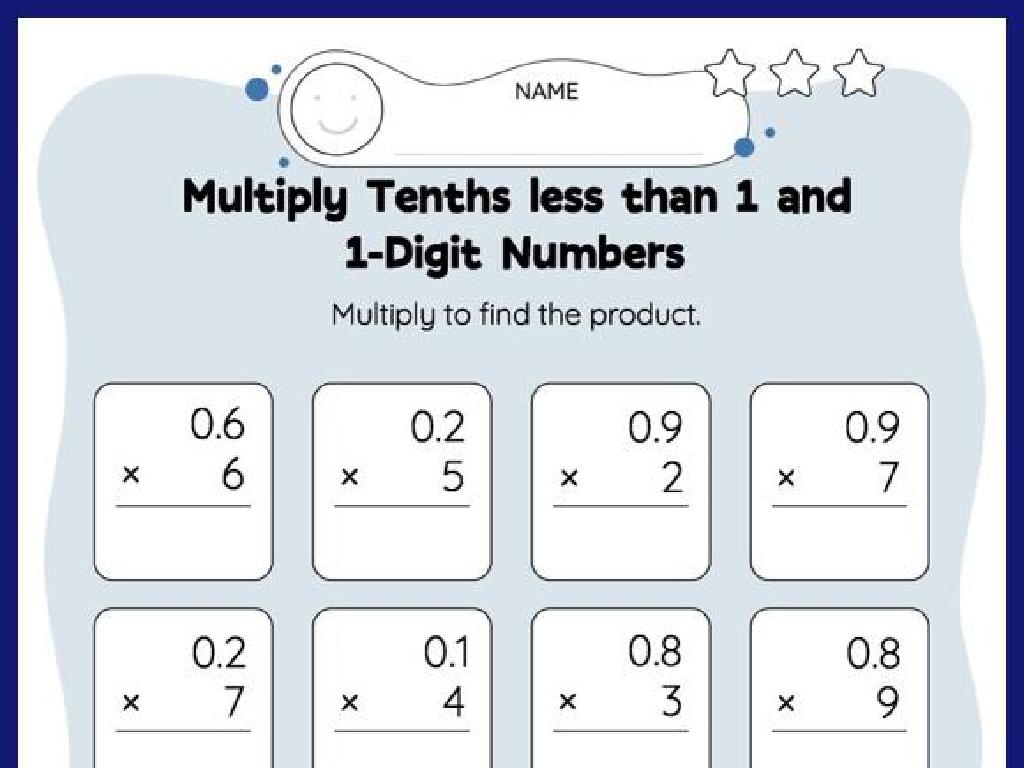New England Colonies: Economy And Conflict
Subject: Social studies
Grade: Fourth grade
Topic: English Colonies In North America
Please LOG IN to download the presentation. Access is available to registered users only.
View More Content
Exploring New England Colonies: Economy and Conflict
– Meet the New England Colonies
– A group of colonies in the north with cool climate and rocky soil
– Geography shapes life
– Harsh winters and forests influenced jobs and homes
– Economy: Trade & Farming
– Colonists traded goods and had small farms
– Conflicts in the Colonies
– Disputes with Native Americans and among colonists
|
This slide introduces students to the New England Colonies, focusing on how geography influenced the economy and led to conflicts. Emphasize the unique characteristics of the region, such as the cool climate and rocky soil, which made large-scale farming difficult but were suitable for trade and small farms. Discuss how the natural resources and climate shaped the colonists’ way of life and livelihoods. Highlight the conflicts that arose, including those with Native Americans over land and resources, as well as internal disputes among colonists. Use maps to show the location of the colonies and pictures to illustrate the geography and colonial life. Encourage students to think about how living in such an environment would influence their daily activities and the choices they would make.
Daily Life in New England Colonies
– Everyday life in colonial times
– Daily routines included farming, chores, and trade.
– Family roles in the colonies
– Each family member had specific duties for survival.
– Community and church significance
– Town meetings and church were central to colonial life.
– Class activity: Colonial role-play
|
This slide aims to give students a glimpse into the daily life of people in the New England colonies. Discuss the typical day-to-day activities such as farming, household chores, and trade. Explain the roles of different family members, including children. Emphasize the importance of community and church, which were the pillars of social life and governance. For the class activity, students can role-play different family members or community roles to better understand colonial life. Possible activities include simulating a town meeting, acting out a day on a farm, or a mock church service. This interactive approach will help students connect with the historical content and appreciate the collaborative nature of colonial society.
New England’s Economy: Key Industries
– Fishing and whaling’s role
– Coastal geography supported a thriving fishing and whaling industry, providing food and goods.
– Shipbuilding industry
– Skilled craftsmen and abundant timber led to a booming shipbuilding sector, vital for trade.
– Triangular Trade explained
– A trade system between the Americas, Africa, and Europe, exchanging goods, including enslaved people.
– Impact on economy and society
|
This slide aims to educate fourth-grade students on the economic foundations of the New England colonies. Emphasize the importance of fishing and whaling due to the proximity to the Atlantic Ocean, which provided resources for food and trade. Discuss how the abundance of forests contributed to shipbuilding, making New England a hub for maritime commerce. Introduce the concept of the Triangular Trade, highlighting its significance in the colonial economy but also addressing the moral implications of trading enslaved people. Use maps and diagrams to help students visualize trade routes and the exchange of goods. Encourage critical thinking about the impact of these industries on the society and economy of the time.
Conflict in New England Colonies
– Different conflicts in New England
– King Philip’s War overview
– A war between Native Americans and settlers in 1675-1678
– Impact of conflicts on colonies
– Conflicts led to changes in power and land ownership
– Understanding colonial changes
– How did these conflicts change the way colonies operated?
|
This slide aims to introduce students to the various conflicts that occurred in the New England colonies, with a focus on King Philip’s War. It’s important to discuss the reasons behind the conflicts, such as competition for land and resources, and the effects they had on the colonies, including shifts in power and territorial boundaries. Highlight how these conflicts, especially King Philip’s War, were pivotal in shaping the future of the colonies. Encourage students to think about how conflict can lead to change and the lasting impact these historical events have on society.
Economy and Conflict in New England Colonies
– Cause and effect in history
– How events lead to other events
– Economy’s role in conflicts
– Trade disputes led to tensions
– Conflicts’ impact on economy
– Wars changed trade and jobs
– Examples of cause and effect
– Boston Tea Party: tax protest changed laws
|
This slide aims to help students understand the concept of cause and effect, particularly in the context of the New England colonies. It’s crucial to explain that historical events are often connected; one event can cause another. For instance, economic factors like trade disputes and taxes often led to conflicts such as wars and protests. In turn, these conflicts had significant effects on the economy, altering trade practices and job availability. Use concrete examples like the Boston Tea Party to illustrate how economic decisions (taxation without representation) led to a significant conflict and subsequent changes in the colonies’ economy and governance. Encourage students to think of other examples where a decision or action led to a major event or change.
Class Activity: Life in New England Colonies
– Engage in role-play activity
– Experience New England scenarios
– Pretend to be a colonist, a merchant, or a Native American
– Discuss economy’s impact on life
– How did trade, jobs, and resources shape daily routines?
– Reflect on conflicts of the era
– Consider wars, laws, and relationships with Native Americans
|
This interactive class activity is designed to help students empathize with people from the New England colonies and understand the complexities of their lives. Students will role-play various historical figures and scenarios, such as a day in the life of a colonist, a merchant’s trade negotiation, or a Native American’s encounter with settlers. Through this, they’ll explore how the economy influenced daily activities and how conflicts arose and were managed. Teachers should prepare a few scenarios in advance, guide the students through the role-play, and facilitate a discussion afterward to reflect on the experiences. Possible roles include farmers, shopkeepers, shipbuilders, and governors. Scenarios can involve trade, town meetings, or land disputes. This will help students grasp the historical context of the New England colonies’ economy and conflicts.
Reflecting on New England Colonies
– Recap: Economy & Conflict
– Importance of this history
– Understanding our past shapes our future.
– Class discussion
– Let’s talk about what stood out to you.
– Share our discoveries
– Tell the class about your favorite fact.
|
As we conclude our lesson on the New England colonies, it’s crucial to revisit the key points about their economy and the conflicts they faced. Emphasize the significance of learning history to understand how it influences our present and future. Facilitate a class discussion where students can talk about the aspects of the lesson that were most interesting to them. Encourage them to share any new insights or facts they’ve learned. This reflection helps to reinforce their knowledge and allows them to appreciate the importance of the historical events discussed.






